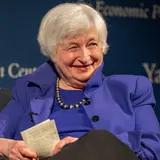Use of Federal Reserve Programs - 06/04/2020
Below we report on operational Fed programs, based on the Fed’s weekly H.4.1 release. Since last week the Main Street Lending Program has started operations; however, no funds have been extended so far. Treasury has contributed $104 billion in CARES Act funds to five Fed lending facilities to date.
Note on Treasury contributions to Fed facilities
The Treasury announced on April 9 that it intended to use funds available under the CARES Act to purchase equity in special purpose vehicles established under Fed lending programs. As of June 4, the Treasury invested a total of $104 billion in five facilities: equity investments of $10 billion into Commercial Paper Funding Facility LLC II, $37.5 billion into Corporate Credit Facilities LLC, $17.5 billion into Municipal Liquidity Facility LLC, and $37.5 billion into the Main Street Facilities LLC; and $1.5 billion in credit protection for the Money Market Mutual Fund Liquidity Facility.
Per the facility agreements, 85% of the equity contributions to the CCF, CPFF and MLF have been invested in nonmarketable Treasury securities; $31.9 billion for the CCF, $8.5 billion for the CPFF, and $14.9 billion for the MLF. These investments are reflected in the balance of the respective facilities. The equity contributed to the MSF on June 1 has not been invested yet.
Liquidity Swap Lines
The USD swap lines are bilateral agreements between the Fed and foreign central banks. They allow foreign central banks to exchange domestic currency for US dollars. The Fed currently maintains swap line agreements with 14 central banks.
Money Market Mutual Fund Liquidity Facility
The MMLF allows the Fed to fund the purchase of money market mutual fund assets. The program is established under section 13(3) of the Federal Reserve Act. The Fed reported that the U.S. Treasury, to date, has provided credit protection of $1.5 billion to the Money Market Mutual Fund Liquidity Facility.
Discount Window
The DW is a standing facility that allows the Fed to provide collateralized loans to
depository institutions.
Primary Dealer Credit Facility
The PDCF allows the Fed to extend collateralized loans to primary dealers. The facility was established under section 13(3).
Paycheck Protection Program Liquidity Facility
The PPPLF allows the Fed to provide financial institutions with liquidity backed by loans to small and medium businesses extended under the federal government’s Paycheck Protection Program and guaranteed by the Small Business Administration. The Program was established under section 13(3).
Commercial Paper Funding Facility
The CPFF provides a liquidity backstop to issuers of commercial paper and was also established under section 13(3). It is operated by the FRBNY through a special purpose vehicle, the Commercial Paper Funding Facility II LLC (CPFF LLC). The Treasury has made an equity investment of $10 billion in CPFF LLC.
Primary and Secondary Market Corporate Credit Facilities
The PMCCF and SMCCF were set up under section 13(3) to support credit to employers through purchases of newly issued bonds and support market liquidity for outstanding corporate bonds. These facilities operate through a special purpose vehicle, the Corporate Credit Facilities LLC (CCF LLC). The Treasury has made an equity investment of $37.5 billion in CCF LLC.
Municipal Liquidity Facility
The MLF provides liquidity to states, counties and cities. The facility was set up to purchase up to $500 billion of short-term notes and was established under section 13(3). The Treasury has made an equity investment of $17.5 billion in MLF LLC.
Main Street Lending Programs
The MSF is established under section 13(3) to provide loans to SMEs. The program operates through three facilities: the Main Street New Loan Facility (MSNLF), the Main Street Priority Loan Facility (MSPLF), and the Main Street Expanded Loan Facility (MSELF). The loans are extended through a special purpose vehicle, the Main Street Facilities LLC (MSF LLC), established by the Federal Reserve Bank of Boston.



